After shutting down stores across Punjab and surviving a suicide bomb attack on a protest held in front of Punjab Assembly Lahore earlier this month, Pakistan Chemist and Druggist Association (PCDA) finally decided to call off their strike upon surety from Law Minister Mr. Rana Sana Ullah Khan that the recent Punjab Drug Act 2017 will be revised with the consent of all stake holders.
Many handwritten notifications are floating on social media, claiming that negotiations were fruitful with the Punjab government. However, not a single signature of any government official was to found on these documents, putting a big question mark on their authenticity.
Background
The Punjab Drugs (Amendment) Bill 2017 was introduced by Mr. Rana Sana Ullah Khan, Minister for Law & Parliamentary Affairs, last month in Punjab Assembly and was condemned by stakeholders. The bill is an amendment of the Drug Act 1976 which was introduced for the control and eradication of spurious, adulterated and substandard drugs.
The same kind of reaction was also observed when the Punjab Drug Act 2015 was introduced to deal with the menace of illegal drugs. The clause in Punjab Drug Act 2015 which proved to be an issue between PCDA and Punjab Government was:
Substandard and Spurious drugs were going to weighted by the authorities on the same scale.
Despite the rejection of this clause by PCDA, the same clause not only exists in the Punjab Drug Act 2017, it also carries a punishment and is proving to be a point of contention between the concerned parties.
What’s in the Bill?
Even though Punjab Drug Act 2015 & 2017 were passed by the Punjab Government in good faith, there are some points which are red flags for the stake holders.
For instance, in Punjab Drug Act 2015 the definition of Sub-standard drugs was omitted and the definition of Spurious drug was changed from
“which purports to be a drug but does not contain the active ingredient of that drug’’ to ‘’which purports to be a drug but does not contain the ingredients of the drug as per specifications’’
which is quite disturbing as in the eyes of the law, sub-standard drug & spurious drug is the same thing so their penalties are also identical.
In Punjab Drug Act 2017, the clause defining a sub-standard drug was included but the definition of spurious drugs was not reverted back to original. This is what has been keeping this whole fiasco going. The other prominent factors of this act are:
- 3 -10 years jail time with fine of Rs 50 lakhs – 5 Crores on:
- Export, import, manufacturing and selling of un registered drugs
- Manufacturing or Sale of drugs without a valid license
- Manufactures, transports or sells a temperature sensitive drug in conditions which are likely to cause the drug to lose its potency.
- Importing of drugs without a license.
- 6 Months- 5 years jail time with fine of Rs 1 Crores –5 Crores on:
- exports, imports, manufactures for sale or sells any substandard drug.
- Suspension of manufacturing license for 30 days. In that suspension period the Provincial Quality Control Board (PQCB) will consider case. Upon remedial actions taken by the manufacturer, the license will be restored otherwise it will be cancelled.
- Hiring of private contractors as drug inspectors. To overcome the short number of drug inspectors to meet the needs to regulate, PQCB will hire private contractors who will be qualified as a drug inspector. The rights of the drug inspectors will be vested upon them.
You can take a look at the Punjab Drug Act (2017) here.
Stake Holders Stance:
PCDA & PPMA which are representation bodies of Pharmacies, chemist/medical stores & pharmaceutical manufacturers in Pakistan strongly opposed the Punjab Drug Act 2017 because they believe the government failed to address their reservations after 43 sittings with the Punjab government for the rectification of Drug Act 2015 and they have done it again in 2017 sweeping their valid concerns under the rug.
According to Malik Arshad Awan, the district president of PCDA the new amendments are very harsh and the government did not need to punish distributors and retailers in substandard drugs sale as they have nothing to do with the drug being substandard.
Even before the bill was presented in 2017, Mr. Hamid Raza, president of PPMA stated the same concerns in a talk show last year. While building his case, he stated that 800 legit pharmaceutical plants are catering to 90% of the medicinal needs of Pakistan. Only 35 countries’ pharmaceutical industries are well equipped to manage that much and Pakistan is a part of them.
Not only that, Pakistan’s medicines because of their quality and lowest rates are exported to 60 countries generating a lot of revenue for the country. Keeping all that benefits Pakistan pharmaceutical industry is giving, the government should support its industry to make it more grow instead of cuffing it within the laws which are not even as per international standards.
Merging spurious and substandard drugs is against international laws. Spurious drugs don’t contain the active ingredient which is claimed on the label while a substandard drug has that active ingredient but in a lesser amount than what’s claimed on the label. How could they be the same thing?
What does Punjab government have to say?
The Punjab government, after facing Cardiac Institute of Lahore scandals, which resulted in loss of precious lives caused by mixing up of antimalarial drug in blood pressure controlling medicines and un registered inferior quality of stents being used there, decided to go after whoever is involved in medicine business without any strategy.
Punjab government ruled out any conspiracy theories about damaging the pharma business and stated that the reason behind these amendments are none other than to identify and punish the black sheeps playing with people’s lives.
In recent tweets, the CM Punjab Mr. Shabaz Shareef has made it very clear that the amendment in Drug Act is meant to stop production of spurious drugs and mafia/drug cartels will not be allowed to wreak havoc on people’s lives. He also appealed to the public for their support in implementation of this bill.
Repercussions:
Mr. Rana Sana Ullah told the house that the prime objective of the bill was to fix the loop holes in existing provisions of the law and enhance the punishments for people involved in offences related to spurious or substandard drugs.
In the efforts of plugging old loopholes, the Punjab government created new ones:
- The definition of substandard has been included separately but the definition of spurious drugs is not reverted to the original. A drug made according to the specifications will lose its potency with the passage of time. That’s how chemical reactions work. If the label states that a tablet contains 500 mg paracetamol and its sample has been taken from a medical store which shows 400 mg of paracetamol than how will the PQCB judge whether the manufacturer’s claim of 500 mg paracetamol is right or the drug lost its potency because the medical store owner didn’t maintain the optimum conditions?. If the packaging is chipped or medicine is discolored that on which party will be convicted. How will the drug inspector differentiate between science and crime with respect to the confusion between Substandard and spurious drugs. By basic scientific definition Substandard and Spurious drugs cannot be the same. One is of scientific nature while the other is a deliberate crime.
- Small retailers and distributors will face the worst due to this bill as they are already in a transitional phase of changing a sale license from category B & C (issued to Pharmacy assistants and Pharmacy apprentices which is obsolete now) to category A (issued to B pharms & Pharm Ds) which is a tedious and expensive process as they must hire a full-time pharmacist to do that. How can a small medical store owner hire a full-time pharmacist on a Rs. 50,000 monthly pay?. Does it mean that establishing a medical store or pharmacy will be impossible on low investment? Will the patients suffer as they will be forced to go to far-off stores to purchase the medicine?
- There is no point in denying that small medical stores procure medicine mainly from wholesale markets or small distribution setups because of the profit margin and convenience. Buying from these channels doesn’t ensure that only registered products were purchased. How can a medical store owner or even a common man know that the product they are buying is registered or not? Will there be a list of registered medicine shared with the public or would there be a hotline through which they can verify the registration? When there is no channel to acquire that knowledge than how is it fair to implement penalties?
- On every complaint received against the stake holders, there will be an arrest followed by the proceedings of the case. All the offences under Drug Act 1976 are non-bailable. The accused will be in jail until proven guilty. These measures if taken against selling of unregistered / counterfeit or spurious drugs is justifiable but on selling of substandard drugs without clarity on the subject is detrimental to pharma businesses.
- There is a heavy penalty on manufactures who transport drugs and on retailers who sells a temperature sensitive drug in conditions which are likely to cause the drug to lose its potency. Other than the temperature maintenance categories specified in text books, there is no cold-chain established to ensure the quality of temperature sensitive drugs from the manufacturers to the consumer.
Way Forward:
To resolve all these confusions and to save people’s lives the government and all the stake holders must come to an agreement. The bill has been already passed by the Punjab assembly on 2nd February 2017 after Mr. Ch. Amjad Ali Javed presented a report on the bill before the standing committee on health. Before the bill was approved, Punjab Government was supposed to work on the following ways out:
- Clarify the grounds on which the retailers are convicted on selling substandard drugs. Manufacturers can provide a potency certificate with every batch so that the PQCB can have a proof that the drug contains what label claims. Then they can have the analysis on storage conditions of the drug, narrowing down the conviction field.
- Have a hotline from where information on registered drugs can be accessible or a gazette list of registered drugs should be published annually and must be provided to all stake holders free of cost. To make the registered drugs more recognizable there should be a seal or code imprinted on the packages.
- Delegate the task of cold storage maintenance to the distributors as they are well equipped to perform this task.
- How will the deficiency of category A be resolved, Category B restored or Pharm D students involved? There is a dire need for a large scale campaign emphasizing the role a pharmacist can play in the community setup. How the presence of a qualified person save the patients money by equipping them with the knowledge of their medicines which directly lessens the need of hospital trips due to adverse drug reactions and by suggesting more pharma economical substitute.
These amendments were somehow required. As human beings, we should be cognizant of the fact that businesses involving medical services should be no more a way of earning more money rather than a way of providing quality services. Stake holders and the government must know that the biggest stake holders are the patients. Both parties by keeping their egos in check must work collectively for the basic right of people which is access to quality medicine!
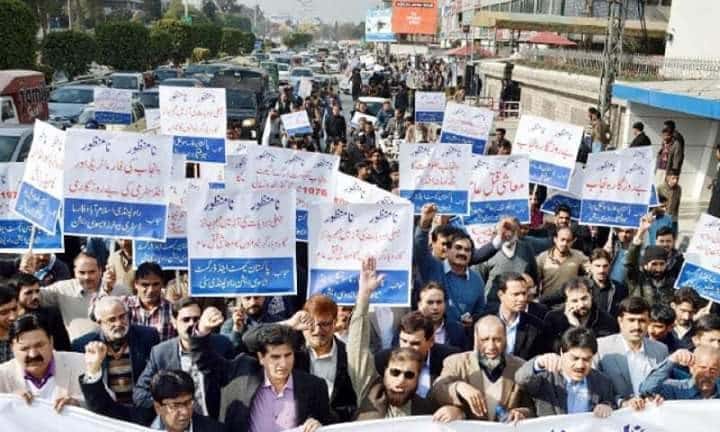

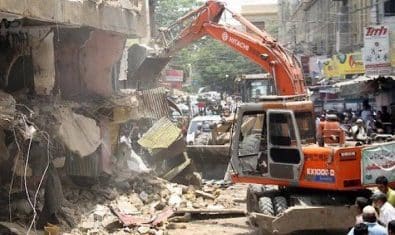

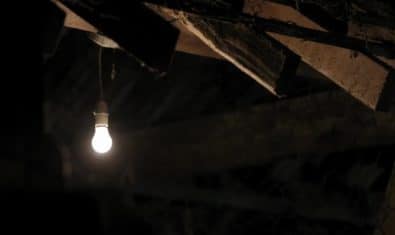
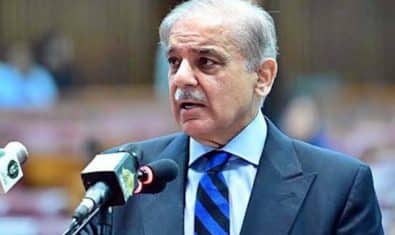
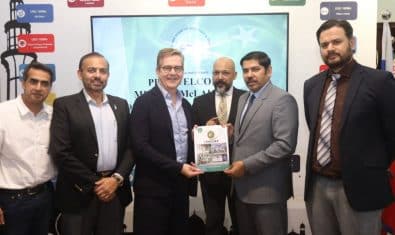















United we stand – Divided we fall !
I couldn’t understand what is the big problem?
Spurious drugs don’t have what they claim so fake
Substandard drugs don’t have full amount of active ingredient but sell on full price
So fake
What is the issue in defining them under same category?
Dhoodh mn pani aur sirf pani( water) mn ferq hai ya nahi
Will you pay full price for substandard product? Regardless of what percentage of that is real?
This is other way to make money and planning to bring their own big stores. U r right brother why we pay for lower..why govt is not taking action against manufacturers why against sellers who just rely on its written label .how they can insure that what is written is right or wrong.manufactring factories are run by these so called our political leaders
How can a common man know that this product (medicine) is substandard???
Substandard drug is a drug which contains the active ingredient but not 100% or according to B.P (British Pharmacopoeia) or U.S.P (United States Pharmacopoeia) standards. If a drug (medicine) is found to be substandard on analysis by a drug testing lab, it means something happened wrong with the drug either due to manufacturing, quality control, storage at the Pharma Plant, transportation from pharma plant to distributor/whole sale agent, storage at a distributor or whole sale premises, transportation from distributor to medical store pharmacy.
OR
due to some chemical reaction which causes a loss of potency.
It is a fact that in a Good Manufacturing Unit under Good Manufacturing Practice and under Good Storage Conditions, when a drug is manufactured and stored, it contains 100% or even more than 100% of the drug the label claims but as the time passes, even after the expiry date mentioned on the drug it still contains 100% or more than 90% of the active ingredient which is still within the limits of international standards of B.P/ U.S.P